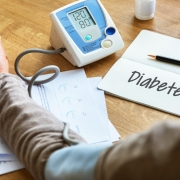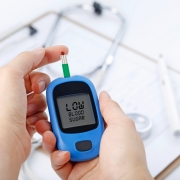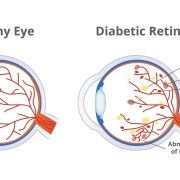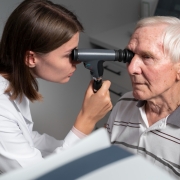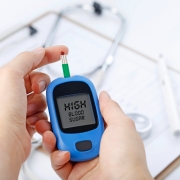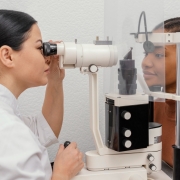Does Diabetes Always Lead to Blindness?
Diabetic retinopathy is a terrible disease that can lead to impaired vision or even blindness. But just because a person has diabetes doesn’t mean this condition will always lead to developing diabetic retinopathy. If you’re concerned about the health of your eyes, you should visit your optometrist for a comprehensive eye exam in Champaign, IL. During the course of this exam, your eye doctor will look for signs of diabetic retinopathy.
How Does Diabetic Retinopathy Occur?
Diabetic retinopathy occurs when high blood sugar levels damage the blood vessels in the retina, the light-sensitive tissue at the back of the eye. Over time, this damage can cause the blood vessels to leak fluid or bleed, leading to vision problems. In advanced stages, diabetic retinopathy can cause severe vision loss or even blindness.
Reducing the Odds of Blindness With Diabetes
There are several preventative steps that a person can take to reduce the odds of blindness with diabetes:
Manage Diabetes
If you have a diagnosis of diabetes, it’s important to manage the disease under a doctor’s care. Your eye doctor can help with vision issues, but the underlying disease of diabetes may require treatment. The worst thing you can do is ignore diabetes since managing it is key to eye health.
Regular Eye Exams
Most people require annual eye exams. But if you have diabetes, you should come in for an eye exam at least twice a year or more. This simple step helps you and your eye doctor to stay on top of developing symptoms so treatment plans can be made and implemented.
It’s important to note that diabetes can also increase the risk of other eye conditions besides diabetic retinopathy, such as cataracts and glaucoma. Like diabetic retinopathy, these conditions can lead to vision problems or blindness if left untreated. Contact your Champaign, IL eye doctor today to book an appointment.


